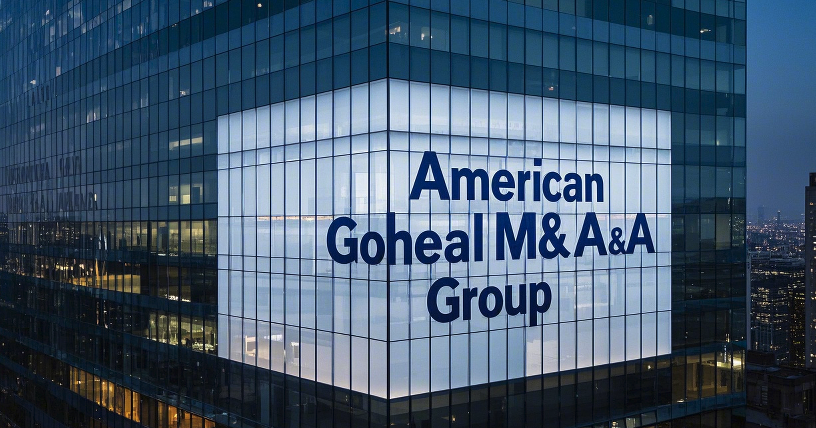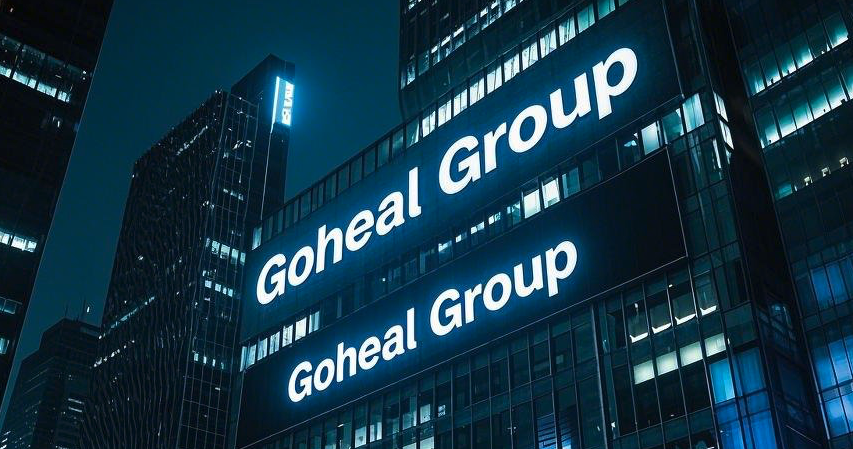"Warfare is the art of deception." In the battlefield of the capital market, the acquisition of control rights is like a siege without gunpowder. Some people enter the game in the name of value investors, vowing to optimize governance and enhance corporate value; others are regarded as "barbarians" who grab short-term profits through capital operations and plunge the company into turmoil.

American Goheal M&A Group
Is the acquisition of control rights an opportunity for corporate change or a sword to undermine stability? Goheal has long studied the acquisition cases of global listed companies and found that it is often not a simple "good or bad" behind it, but a struggle between interests, power, and strategy.
When capital flows in, who is manipulating the fate of the company?
Whenever the capital market spreads the news that a listed company has been acquired, the stock price often fluctuates violently in an instant, and the market sentiment will also split into two completely different factions. On the one hand, investors hope that the "new owner" will bring new growth points and rejuvenate the company; on the other hand, the original management may regard it as a "malicious invasion" and take various defensive measures to try to resist the change of control.
Take Elon Musk's acquisition of Twitter in 2022 as an example. This $44 billion deal was initially interpreted by the market as a move by a "tech madman to promote social media change". However, after the acquisition, Twitter experienced large-scale layoffs, product adjustments and even name changes (now changed to X), and the confidence of users and advertisers was once hit hard. Is Musk's acquisition a value investment or a "barbarian knocking on the door"? There are still different interpretations.
In fact, every change in the control of a listed company is the result of a multi-party game between capital, management and the market. Goheal found that successful control acquisitions often have the following key elements: strategic matching, integration capabilities, and capital endurance. On the contrary, if the acquirer is only short-term arbitrage or fails to effectively integrate resources, it often ends in failure.
Barbarians knocking on the door, or knights saving the day?
In the world of control acquisitions, the classic concept of "barbarian knocking on the door" originated from the leveraged buyout wave on Wall Street in the 1980s. At that time, private equity funds and activist investors used high leverage to forcibly acquire poorly managed companies and quickly make profits by splitting assets, laying off employees and reducing costs. These capital players are often dubbed "barbarians" by the market because their ultimate goal is not long-term operation, but short-term arbitrage.
Carlyle's acquisition of DuPont's Teflon business and KKR's acquisition of RJR Nabisco are both typical cases of "barbarians knocking on the door". The common feature of these transactions is that the acquirer uses leverage to leverage huge funds into the target company, quickly reorganizes assets, and ultimately obtains huge returns by selling part of the business or exiting the market. But for the acquired company, the management may be replaced, the business direction may be forced to adjust, and employees and shareholders often face uncertainty.
However, not all control acquisitions are carried out in a "barbaric" way. Real value investors often achieve long-term benefits by optimizing corporate governance and promoting business growth. A typical example is Berkshire Hathaway's acquisition of See's Candies. Buffett not only did not interfere with the company's daily operations, but helped it expand its market, making See's Candies a stable and profitable brand asset. This acquisition method is more like a "knight rescue", helping the company move towards a higher value space.
The key to the control game: Who will have the last laugh?
The acquisition of control is not a unilateral compulsory action, but a complex game involving capital, management, market sentiment, and regulatory policies. After analyzing past successes and failures, Goheal summarized several key variables to determine who will have the last laugh in this war.
First, the capital endurance of the acquirer is crucial. Even if short-term control is obtained, if there is not enough money to support subsequent integration, it may eventually be forced to withdraw due to a broken capital chain. In 2014, China's Anbang Group acquired the Waldorf Astoria Hotel in New York, USA for US$1.95 billion, which seemed to be a successful deal in the short term. However, due to subsequent liquidity problems, Anbang Group gradually sold some overseas assets, including some floors of the Waldorf Astoria Hotel, becoming one of the cases of failed capital operations.
Secondly, market recognition also affects the success or failure of the acquisition. If investors believe that new shareholders can bring value enhancement, the stock price will usually rise, and even help the acquirer to obtain financing more easily. But if the market does not trust the new management, the stock price may continue to fall, affecting the stability of operations after the acquisition. For example, after HP acquired the British software company Autonomy in 2013, the market doubted the management's execution ability, which eventually led to a significant impairment of the company's assets and became a failed M&A case.
In addition, the management's resistance is also a decisive factor. Faced with potential acquisitions, some companies will set up a "poison pill plan" (Poison Pill), that is, to prevent hostile acquisitions by issuing additional shares and increasing acquisition costs. Before Tesla CEO Elon Musk acquired Twitter, Twitter's board of directors tried to resist the acquisition through similar measures, but ultimately failed. In the battlefield of control acquisition, the game between the acquirer and the target company's management often determines the final transaction direction.
Future capital chess game: Is acquisition an opportunity or a crisis?
Against the background of increasingly active global capital markets, the acquisition of control of listed companies will still be a common way of capital operation. For investors, understanding the true intention of mergers and acquisitions is more important than simply paying attention to the acquisition news itself. Goheal reminded investors that the key to judging whether a control acquisition is a "value investment" or a "barbaric knock" lies in observing the acquirer's long-term strategy, integration capabilities and changes in corporate governance.
So, in the current market environment, which companies do you think may become acquisition targets? Which acquisition cases are the most controversial? Welcome to leave a message in the comment area to discuss, let us explore the future of this capital chess game together!

Goheal Group
[About Goheal] Goheal is a leading investment holding company focusing on global mergers and acquisitions, focusing on the three core business areas of listed company control acquisition, listed company mergers and acquisitions and restructuring, and listed company capital operation. With its deep professional strength and rich experience, it provides enterprises with full life cycle services from mergers and acquisitions to restructuring and capital operation, aiming to maximize corporate value and achieve long-term benefit growth.